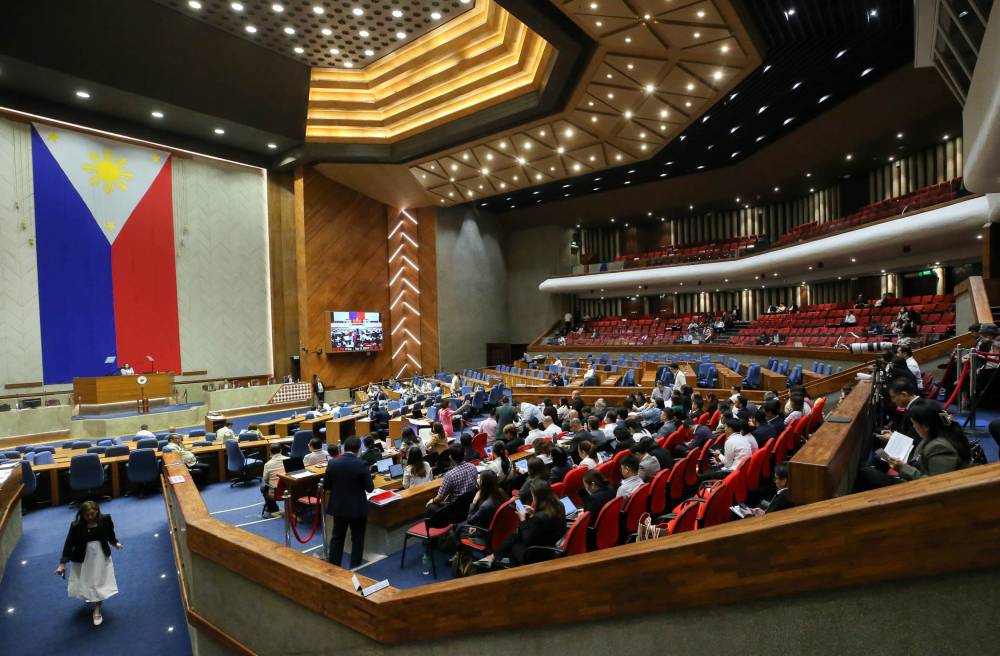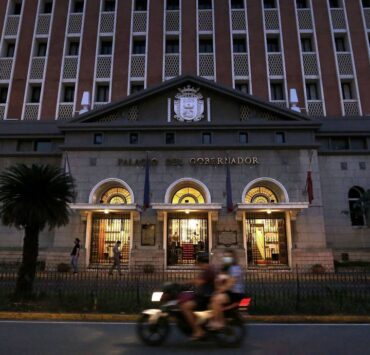Senate, House rushing bills before June 13

Malacañang on Friday said leaders of the Senate and the House of Representatives have committed to pass the long-delayed government rightsizing bill and several other priority measures of the Marcos administration before the 19th Congress adjourns on June 13.
Palace press officer Claire Castro said the lawmakers gave their assurance to President Marcos on Thursday during the Legislative-Executive Development Advisory Council (Ledac) meeting.
Besides the national government rightsizing program bill, she said the lawmakers also agreed to approve the proposed amendments to the Right-of-Way Act and Cooperative Code, and the proposed measure establishing the National Disease Prevention and Management Authority.
Castro said the House had already approved the rightsizing bill, but the Senate has yet to adopt its own version of the measure.
“Once it is enacted into law, the delivery of services to the people will be better because the redundant, overlapping and unnecessary functions and programs of (some state) agencies will be removed,” she said.
Chiz: 12, not just 4
But Senate President Francis “Chiz” Escudero said they actually agreed to pass 12 major measures, not just four as Castro mentioned.
Included on the list were the proposed amendments to the Foreign Investors’ Long-Term Lease Act, E-Governance Act, Open Access in Data Transmission, (also known as the Konektadong Pinoy Act), Rationalization of the Fiscal Mining Regime and amendments to the Universal Health Care Act.
The Senate leader said they would also prioritize the measures creating the Virology Institute of the Philippines, setting the term of office of barangay and Sangguniang Kabataan officials and providing judicial fiscal autonomy.
In addition, he said Ledac also agreed to approve the imposition of tax on denatured alcohol and the measure completely banning Philippine offshore gaming operators.
Escudero argued that the need to pass these proposed bills necessitated the rescheduling which was set on June 2.
Appointees on agenda
The Senate president sent separate letters to Duterte and Speaker Martin Romualdez on Thursday informing them about the new schedule of the Senate impeachment proceedings.
According to Escudero, Congress would also need to discuss the designation of some 200 presidential appointees, among them Transportation Secretary Vince Dizon, Presidential Communications Secretary Jay Ruiz and Foreign Secretary Ma. Theresa Lazaro.
He said they would likewise take up the appointments of four members of constitutional commissions, 39 diplomats and nearly 300 military officers.
Romualdez said the House had passed 27 of the 28 measures under the common legislative agenda.
A status report showed that 12 of the 27 bills had already been signed into law by President Marcos. These include the New Government Procurement Reform Act, Anti-Financial Account Scamming Act, Anti-Agricultural Economic Sabotage Act, VAT on Digital Transactions, Academic Recovery and Accessible Learning Program Act, Self-Reliant Defense Posture Revitalization Act, Philippine Maritime Zones Act, Philippine Archipelagic Sea Lanes Act, CREATE More, Enterprise-Based Education and Training Framework Act, and amendments to the Agricultural Tariffication Act.
The bill amending the Electric Power Industry Reform Act (Epira) lapsed into law on April 18.
For deliberation
The following are under conference committee deliberation: Blue Economy Act, amendments to the Universal Health Care Act, Open Access in Data Transmission Act, E-Governance Act, Rationalization of Mining Fiscal Regime, and Foreign Investors’ Long Term Lease amendments.
Approved on third and final reading by the House and transmitted to the Senate were National Water Resources Act, amendments to the Right-of-Way Act, National Citizens Service Training Program Act, Military and Uniformed Personnel Pension System Act, Water Treatment Technology Act, Single-use Plastic Bags Tax Act, Revised Government Auditing Act, and Immigration Modernization Act.
Of 28 Ledac bills, only the proposed amendments to the agrarian reform law remains pending approval in the House of Representatives.

















